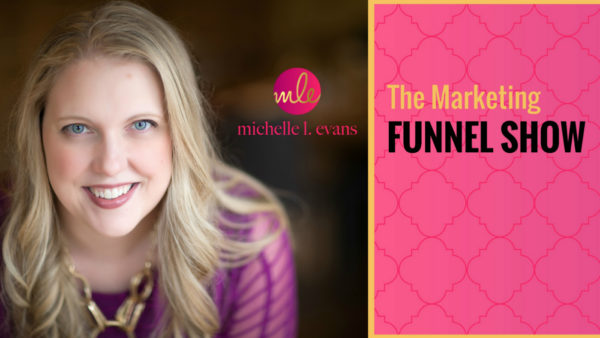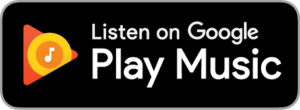
Episode 62: Podcast Guesting 101 with Matt Johnson
If you’ve been in my audience for any length of time, you’ve probably heard me talk quite a bit about being a guest on a podcast as a way to attract people into my marketing funnel.
I love being a guest — I’ve been a guest on more than 60 podcasts. It’s fun; it’s a great way to meet people; and it’s a great way to attract clients, students, and business connections. But I didn’t always feel that way, AND for a long time, I struggled with how to get on podcasts consistently.
That’s why I invited my guest, Matt Johnson, CEO of Pursuing Results, to talk about something near and dear to my heart — being a podcast guest. Matt is going to help you understand the ins and outs of getting started as a guest.
Let me tell you a bit about Matt:
Matt Johnson is a marketer, entrepreneur, musician, and podcast host/expert. As founder of Pursuing Results, a podcast PR & production agency based in San Diego, Matt runs a worldwide virtual team helping business coaches and agencies break in and dominate new markets through podcasting.
Matt currently hosts and co-hosts niche business shows, such as The YouX Podcast and Real Estate Uncensored. He also speaks to experts and entrepreneurs on how to turn a rockstar business into a YouX Machine. As a featured podcast guest, he speaks to audiences around the U.S., Canada, and Australia.
 BIGGEST SHOW TAKEAWAYS:
BIGGEST SHOW TAKEAWAYS:
What would you tell somebody to do if they wanted to get started with pitching themselves for the first time?
- The best advice is to start small. For someone that's just starting out, don't worry about the bigger podcasts of the world. Not only will they come in time, but with the smaller podcasts you do in the meantime, the better that you'll get. When you get the bigger opportunity, you'll also be able to leverage and maximize it. If you get those big opportunities too soon you just don't have your funnel in place, it's not optimized, and maybe you haven’t optimized the way that you talk about your offer, the way that you present, and the way that you fascinate and polarize, which we'll talk about later. It just isn't as sharp as it could be, so it's actually really good to start out with smaller podcasts.
- The great thing about smaller podcasts is that the average podcast — no matter how small — still gets a couple hundred downloads. You can go really in depth, open up and share, and it gives you the chance to really refine what you're saying and how you're saying it. They're always looking for great guests. There are half a million podcasts out there — half of those are six-months-old or less. So there's never a shortage of shows to go on. Just start small and start pitching.
What have you seen people doing wrong when they try to reach out and pitch — aside from reaching too high?
- Clearly and obviously not listening to the show at all before pitching is a big one. I have people that pitch me that I can look at and know not only did they not listen to the show, they didn't even take more than five seconds to look at the show.
- If you're pitching yourself, take a couple minutes, you don't have to listen to a bunch of episodes but listen to one, or part of one, enough to at least know who the audience is. Know enough about the host to know what's in it for them. Are they selling something? What are they selling and why? Who are they selling it to? That way you can tailor your approach a little bit and know you’ve gotten the big idea right.
- Pitch them on something that's compelling, and fascinating, and a little bit unique.
How do you help your clients hone in on their big idea?
- It's figuring out what their signature message is. One of the questions I love to ask is: If you were given the opportunity today to step on a TED stage and do a TEDx talk, what would it be on?
- Figure out what you can say in three minutes. Cut out everything that's not surprising. Break it down to the stuff that makes you different and unique. If we can uncover two or three surprising things we have to talk about, then usually, for any podcast you can find a match between one of your big ideas that you want to talk about and the big idea of their show and who they're trying to reach.
Do you feel like people have to be sort of that contrarian or take sort of a polarizing opinion in order to be an effective guest or a guest that really stands out?
- You should have a unique way, or signature way, of doing things that is different from everybody else in your market because, otherwise, you're just doing the same thing as everybody else. It may take a while to develop that and maybe you don't feel like you've quite honed in on it yet, and that's okay.
- By doing podcast interviews, you'll start to clarify and refine your message. The more podcast interviews that you do, you'll find little phrases, little things that you say, that the host will go ‘Oh, man, I never thought about it that way’, and you're like, ‘Hmm, I should write that down and probably say that again.’
When you start to clarify your message, how do you make it have legs so that you can take it further than just a few comments?
- It helps to give it legs by starting with the frustration first. By putting your unique spin on the frustration. So, for example, marketing funnels are not about just shoving your product and benefit message in front of people until they give up the will to live and they buy your stuff.
- When you're explaining the frustration that they're having, but you're explaining it in a way that nobody else has, they know you understand, and they think you’ve figured out something they don’t know. Psychologically, it sets you up as the person that must have the solution because you just explained the problem differently or better than anybody else has.
- It’s actually better to not get into the steps of the unique way of how you solve the problem. Just articulate the problem differently — and better — so they come to you and ask what the solution is.
What are some things that you've seen people do that really help them stand out aside from being a rebel?
- Just being themselves and coming in with great energy. We've had lots of coaches on our shows, and people reach out to them for consultations afterward because they just loved their personality. They weren't afraid to let their personality shine — even though they were dealing with a podcast host who often has a strong personality of their own.
- Don't be the shrinking violet that lets the host carry everything. They want you to show up and just own your space. Be confident in who you are, what you sell, and just kind of own your expertise. Don't devalue yourself. Don't defer to the podcast host on everything.
- At some point, you have to be confident in who you are and be relaxed in what you're talking about, and the podcast host and the audience will feed off of that.
I know that to connect with people I have to be more open, and so it's something that I've really pushed myself to do. What advice would you give someone like me?
- This is the greatest time in the history on earth to be an entrepreneur who is also an introvert. Podcasts are amazing — and great for introverts. Podcasting is kind of the new networking.
- What introverts need to realize is we are naturally very well equipped to be better listeners, and podcast hosts love to have a guest on their show that doesn't just override them, that doesn't plow through them. That actually builds rapport. They listen to what they're saying and answer the question and don’t just go on with their talking points that they had in mind to share.
- As a podcast host, one of my pet peeves is someone that has so much of their own agenda that when I ask them a question, they basically reroute it right back on track with their own talking points. But for introverts, sitting back and listening comes naturally. We want to listen, we want to engage, we want to draw the other person into the conversation. So, to me, an introvert has a natural advantage in being a podcast guest. You don't have to be the guy who walks into the room and talks loud and jingles change in your pocket.
So, you’ve said podcasting is the new networking. What do you mean by that?
- We seem to think that when we look at other people who are the big names in our industry, that somehow they sprang into existence on their own and built their empires off in a corner. But when you actually get to know some of those people, you realize they all have a network of other influencers who support each other.
- Podcasts, to me, are the best way to meet other influencers. They want to connect with other influential people and podcasting is how they do it a lot of times.
- These days, if I want to go to an event, I look at the speaker list. I target who I want to have a meeting with and I invite them onto a podcast, or I pitch myself onto theirs. That way, we meet before I ever show up to the event — and probably have a meeting set up, a chance to meet them, or a specific time and place to get together with them at an event. So, the event isn't the thing, it was the podcasting that was the thing. That's what actually introduced us and, to me, it's a lot easier to have a 20-minute conversation where you really build rapport with someone on a podcast one on one than catching them for five minutes after they get done speaking at an event. They're not going to remember you.
- Being on a podcast as a guest automatically puts you in a different situation because that influencer, the podcast host, is showing up. They're having you on their show, so what do they do? They start off saying very nice things about you. It immediately puts it into a completely different context. Then we get to have this amazing, real free-flowing conversation. We can see each other, we can make eye contact, we can see each other's body language. All that stuff that builds real human relationships we're doing over podcasts.
How do you feel about the idea of showing up and delivering value before someone even asks you for something?
- For anybody that's selling your own expertise, your own creativity, you're really selling your time, your brain, and the solution to the problems that you solve. We way underestimate just how important it is to get referrals from other influencers and be seen out there with other influencers saying good things about us. Here's the dirty little secret: People can't tell how good we actually are at what we do. And we underestimate just how much fear and risk is going through the minds of the people that we're selling to because they just don't know how good we are at what we do. They're going into it blind.
- The thing that's radically changed over the last 10 or 15 years of there being all this content available is now the latest research says that about 60% of the buying decision happens before they ever reach out to somebody. That's definitely true if we're like a solo service provider where they have to reach out to us. They have to talk to us, the person they actually hire. That's even more of like an ask. They may have already made more of the decision than we realize. They're looking on podcasts, they're looking on our website, they're asking around to their friends and Facebook groups. They're doing all their due diligence before we even ever know who they are a lot of times.
- The more content that we create, the more point of view we put out there the better. People need to believe certain things in order to hire us. They have to agree with how we see the frustration. They have to agree with our solution to the problem. They have to agree with the way that we want to add value to their life. They have to believe some of the same things that we do. I don't know of any other way to deliver a message through marketing right now where people spend as much time with us as a podcast where the listeners are actually listening to, I think it's 80% of people listen to most or all of the podcast episode that they start. Podcasts allow them to spend the time with us that they need to change their beliefs over time.
Any final thoughts on podcast pitching?
- Doing it yourself may not be worth your time as the expert. You can hire somebody, a virtual assistant, an intern, or a personal assistant, to be doing all the pitching for you so you can just show up and have the conversations. I built a system, so if you go check out my Podcast Pitch Assistant, you can actually get the high-level overview of how you hire somebody or how you take someone that's already on your team and have them pitching you instead.
- Start NOW, because if you really want to have an impact on the world you, you can't do it alone. Everybody needs a supporting team behind them. When you see someone like Gary V. all over social media, it's not him. He's got 18 people on his content team. That's who's doing the actual work. You see his message everywhere because he has a team behind him that helps support him and put the content out there, and we all need a version of that. We've got to have other people. We've got to pour ourselves into other people, into building a team around us that can support us on our mission to impact the world.
Want to know which marketing funnel is right for you and your business? Take this free and easy quiz, and in less than 5 minutes, you’ll know EXACTLY which funnel is right for you.
Links mentioned in this episode:
- Free PDF on the steps to pitch you to a podcast: www.pitchassistantroadmap.com
- Course for your VA/assistant to pitch you: www.podcastpitchassistant.com
- Matt’s website: www.PursuingResults.com
- Marketing Funnel Quiz: https://www.michellelevans.com/marketing-funnel-quiz/



